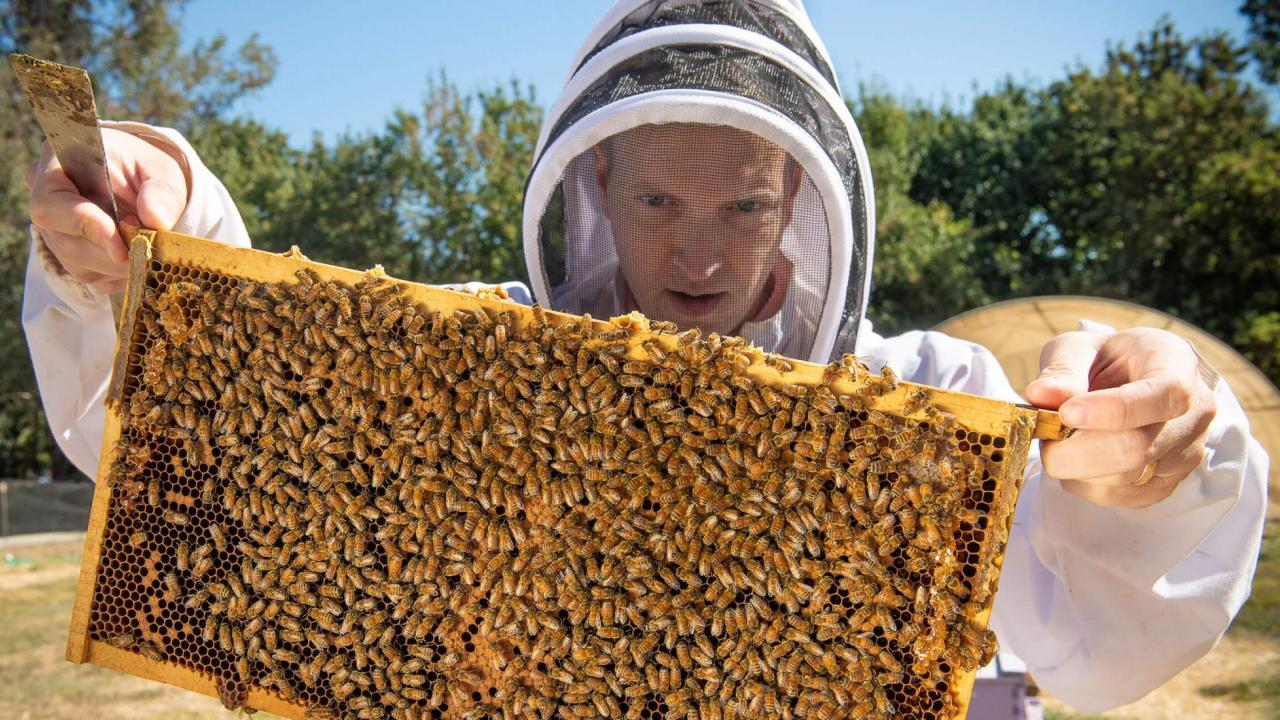
Honey Bees Need Veterinarians Too
by Sara N. Garcia, Ph.D.
Honey bees play a critical role in agricultural production and pollinate roughly one-third of all food eaten in the United States, including apples, melons, cranberries, pumpkins, squash, broccoli, and almonds. In the US, honey bees account for $15 billion in added crop value, and in California, honey production is ranked 5th in the nation with a value of $22.9 million. Honey bees are crucial in pollination for domestic agriculture, food security, and the nutritional benefits they provide to society. Safeguarding their health is of the utmost importance.
The Western Institute for Food Safety and Security (WIFSS) at UC Davis, has teamed up with Elina Niño and Bernardo Niño at UC Davis E.L. Niño Bee Laboratory, Jonathan Dear at UCD School of Veterinary Medicine, and Ramesh Sagili at Oregon State University Honey Bee Laboratory to create a new course designed to educate veterinarians in treating diseases of honey bees through an award from the USDA Specialty Crop Multi-State Program. The program is composed of an asynchronous online course and a hands-on, in-person training workshop and qualifies for continuing education units for veterinarians. Participants can take the online course at any time at their own pace. The online portion is a prerequisite for the in-person training. The in-person will be postponed due to COVID-19 and will be available when permitted and conditions are safe.
Veterinarians play an important role in maintaining animal health of many species to ensure that people have plentiful, safe, and nutritious food. As a food producing animal, honey bees are included! Honey bees are vulnerable to highly contagious bacterial diseases, such as American foulbrood, and veterinarians are necessary to oversee the proper use of antibiotics in apiaries to treat bacterial disease. The program developed at UC Davis, will train veterinarians, apiculture educators, and beekeepers to better understand the prudent use of antibiotics, the Veterinary Feed Directive (VFD), bee biology, and beekeeping.
Training will be provided through a comprehensive online bee biology course and a hands-on beekeeping program and covers honey bee biology, beekeeping techniques and tools, and information regarding the new laws that govern antibiotic use in apiculture. The oversight veterinarians provide in prescribing antibiotics helps to prevent the development of antibiotic resistant bacteria, enhances food safety and ultimately safeguards the health of humans, animals, and environment. By bringing veterinarians together with apiculturists through education, we can maintain strong, healthy colonies for specialty crop pollination and safe honey production for consumers.
If you are interested in more information or enrolling in this course, please pre-register by completing our online survey. You will be added to our mailing list and will be contacted when registration opens.
Check out the program webpage at https://www.wifss.ucdavis.edu/beevets/
